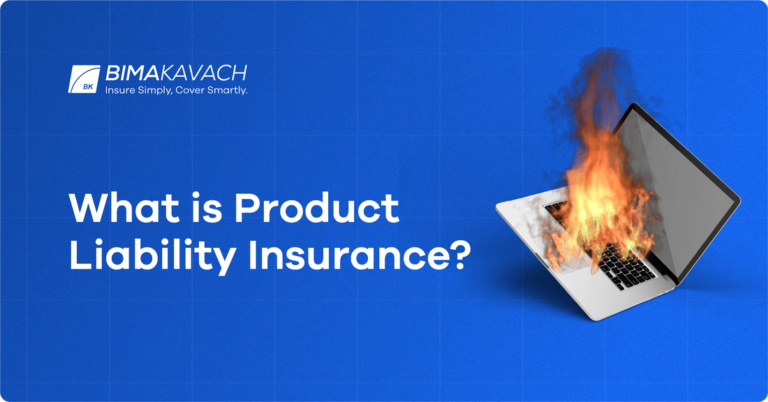Affordable Health Insurance for the Self-Employed
Navigating the world of health insurance can be daunting, especially for the self-employed. However, finding affordable health insurance is crucial for ensuring peace of mind and financial stability. This guide will help you understand the options available, factors to consider, and tips to find the best plan for your needs.
Understanding Health Insurance Basics
What is Health Insurance?
Health insurance is a type of coverage that pays for medical expenses. It can include routine doctor visits, hospital stays, surgeries, and sometimes prescription drugs. When you have health insurance, you pay a monthly premium, and the insurance company covers a significant portion of your medical costs, though you may still be responsible for co-pays and deductibles.
Why is Health Insurance Important?
Health insurance is essential because it protects you from high medical costs. Without it, a serious illness or injury could lead to financial ruin. Moreover, having health insurance encourages preventive care, which can catch health issues early before they become serious.
Options for Self-Employed Health Insurance
Health Insurance Marketplace
The Health Insurance Marketplace, created by the Affordable Care Act (ACA), is a common option for self-employed individuals. Here, you can compare different plans and see if you qualify for subsidies based on your income. These subsidies can significantly reduce your monthly premiums.
Private Health Insurance Plans
If you don’t qualify for marketplace subsidies, or if you prefer other options, you can purchase insurance directly from private insurers. These plans can be tailored to fit your specific needs but often come at a higher cost.
Health Savings Accounts (HSAs)
HSAs are another great option for the self-employed. These accounts allow you to save money tax-free for medical expenses. To qualify, you must have a high-deductible health plan (HDHP). Contributions to an HSA are tax-deductible, and withdrawals for qualified medical expenses are also tax-free.
Association Health Plans (AHPs)
AHPs allow self-employed individuals to band together to purchase insurance as a group, often at lower rates. These plans can be a good option if you belong to a professional organization that offers them.
Medicaid and CHIP
For those with low income, Medicaid and the Children’s Health Insurance Program (CHIP) provide free or low-cost health coverage. Eligibility varies by state, so it’s important to check your state’s requirements.
Key Factors to Consider
Premiums and Deductibles
When choosing a health insurance plan, it’s crucial to balance premiums and deductibles. A lower premium means higher out-of-pocket costs when you need care, and vice versa. Consider your health needs and financial situation to find the right balance.
Coverage and Network
Ensure the plan covers the services you need and that your preferred doctors and hospitals are in the plan’s network. Out-of-network care can be significantly more expensive.
Subsidies and Tax Credits
Take advantage of any subsidies or tax credits you qualify for. These can make a substantial difference in the affordability of your plan. The Health Insurance Marketplace provides tools to check eligibility and estimate savings.
Flexibility and Portability
For the self-employed, having a flexible and portable plan is essential. You might move or travel frequently, so ensure your plan provides adequate coverage wherever you are.
Tips for Finding Affordable Health Insurance
Compare Multiple Plans
Don’t settle for the first plan you find. Use online tools and marketplaces to compare multiple plans. Look at the overall cost, including premiums, deductibles, co-pays, and out-of-pocket maximums.
Take Advantage of Open Enrollment
The open enrollment period is the time each year when you can sign up for health insurance. Missing this period means you might have to wait another year unless you qualify for a special enrollment period due to life events like marriage or the birth of a child.
Consider Your Health Needs
Think about your current health and any anticipated medical needs. If you visit doctors frequently or have ongoing prescriptions, a plan with higher premiums but lower out-of-pocket costs might be better.
Utilize Preventive Services
Many health plans cover preventive services at no additional cost. Regular check-ups, screenings, and immunizations can help detect health issues early and avoid higher costs down the road.
Seek Professional Advice
Insurance brokers and financial advisors can provide valuable insights and help you navigate the complexities of health insurance. They can help you find plans that fit your needs and budget.
Common Health Insurance Terms
Premium
The amount you pay monthly for your health insurance.
Deductible
The amount you pay out-of-pocket for medical expenses before your insurance begins to cover costs.
Co-pay
A fixed amount you pay for a covered health care service, usually when you receive the service.
Out-of-Pocket Maximum
The maximum amount you pay during a policy period before your insurance covers 100% of the allowed amount.
Network
The facilities, providers, and suppliers your health insurer has contracted with to provide health care services.
Case Studies and Real-Life Examples
Freelance Designer in New York
Jane, a freelance graphic designer, uses the Health Insurance Marketplace to find a plan. She qualifies for a subsidy, which reduces her premium significantly. She chooses a Silver plan with a moderate premium and deductible, which covers her routine check-ups and occasional specialist visits.
Independent Contractor in Texas
Mark, an independent contractor, opts for a high-deductible health plan combined with a Health Savings Account. He saves money on premiums and contributes to his HSA, using it for unexpected medical expenses. This approach gives him financial flexibility and tax benefits.
Small Business Owner in California
Sara, a small business owner, joins an Association Health Plan through a local business organization. This plan offers comprehensive coverage at a lower rate than she could find individually. The plan’s network includes her preferred doctors and hospitals, providing her with peace of mind.
Conclusion
Finding affordable health insurance as a self-employed individual might seem challenging, but there are numerous options and resources available to help you make an informed decision. By understanding your needs, comparing plans, and taking advantage of subsidies and tax benefits, you can secure a health insurance plan that offers both comprehensive coverage and affordability. Remember, your health is an investment, and having the right insurance plan can protect both your well-being and your financial future.
Additional Resources
- HealthCare.gov
- National Association of Health Underwriters
- Healthcare Marketplace Calculator
- IRS Health Savings Accounts (HSAs)
FAQs
How can I estimate my health insurance costs?
Use online tools like the Healthcare Marketplace Calculator to estimate your premiums and potential subsidies based on your income and family size.
What if I miss the open enrollment period?
If you miss open enrollment, you may still qualify for a special enrollment period due to life changes such as marriage, birth of a child, or loss of other health coverage.
Are preventive services covered by all plans?
Most health insurance plans, especially those compliant with the ACA, cover preventive services like immunizations, screenings, and check-ups at no additional cost.
Can I change my health insurance plan during the year?
Typically, you can only change plans during open enrollment or if you qualify for a special enrollment period. However, it’s crucial to review your plan annually to ensure it still meets your needs.
What should I do if I can’t afford any health insurance plan?
Check if you qualify for Medicaid or CHIP, which provide free or low-cost health coverage based on income. Additionally, community health centers offer services on a sliding scale based on your ability to pay.






